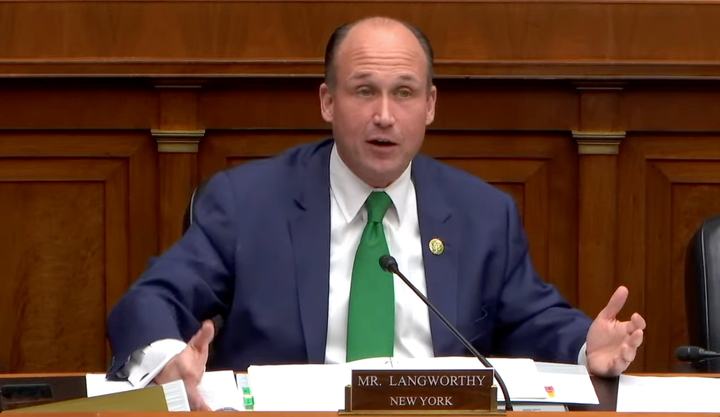After pouring millions into GOP super PACs, the fossil fuel industry is cashing in with the One Big Beautiful Bill, a sweeping budget reconciliation package loaded with giveaways for oil and gas companies. The House and Senate versions of the bill are nearly identical on energy matters, delivering a wish list of tax breaks, drilling incentives, and regulatory rollbacks. Now, the American Petroleum Institute (API), representing hundreds of oil and gas companies, is lobbying the Senate to add even more industry-friendly perks.
The energy portion of the House-passed bill and the Senate Environment and Public Works Committee’s bills both prioritize the fossil fuel industry’s profits over the environment. Both would delay the Inflation Reduction Act’s (IRA) fee on oil and gas companies’ excess methane pollution by 10 years, shielding companies from accountability for a potent greenhouse gas that is responsible for up to 30% of global warming. They would both create an opt-in fee program allowing companies to pay to expedite the environmental review process for approving new fossil fuel infrastructure like pipelines, and limiting communities’ abilities to weigh in against polluting projects. They mandate the Interior Department to immediately begin quarterly lease sales for onshore and offshore drilling. The bills also roll back the EPA’s new vehicle emissions standards, undoing the Biden administration’s rules designed to boost electric vehicle adoption and curb transportation emissions, the largest U.S. greenhouse gas source.
The House bill contains a few industry bonuses that don’t appear in the Senate Environment and Public Works Committee draft, but may still emerge as the full Senate bill is cobbled together from all the different committees. The House bill calls for lowering royalty rates for drilling on public lands from 16.67% to 12.5%, letting oil companies profit off the public’s resources at a discount while reducing taxpayer returns. It would also create a new “de-risking compensation program” that allows oil companies to get paid by taxpayers if the federal government takes any actions delaying their projects or making them less viable.
Both versions of the bill would roll back hundreds of millions of dollars in IRA climate spending, rescinding unobligated funding for programs including the greenhouse gas reduction fund, environmental justice block grants, and the environmental product declaration program.
Big Oil has thrown tens of millions of dollars into electing Republicans to Congress to earn these payoffs. The industry donated $32 million in the 2020 election cycle to the Senate Leadership Fund (SLF), the outside spending group closely tied to Sen. Mitch McConnell (R-Ky.), and the Congressional Leadership Fund (CLF), which is aligned with House Speaker Mike Johnson (R-La.). During the 2024 cycle, it donated even more to these two super PACs. Chevron alone has given the super PACs a combined $22.3 million over the years, according to Federal Election Commission data, while API has thrown in an additional $18.5 million. The New York Times reports that Trump’s campaign, the Republican National Committee, and affiliated committees raised an estimated $75 million from oil interests for the 2024 elections.
Now, the industry is flying in to D.C. for a lobbying event focused on winning more tax benefits before the bill is finalized. According to Politico Influence, API has organized a fly in day today for the executives of top oil and gas companies to meet with Senate offices and push them on the remnants of the wish lists, including permanent reinstatement of full bonus depreciation for assets like drilling equipment and vehicles, deductions for intangible drilling costs like permitting and labor, and retaining IRA’s clean hydrogen production credits.
A few Senate Republicans like Thom Tillis (N.C.) and Jerry Moran (Kans.) have been making noises in the press about salvaging some of the clean energy incentives that became law in the IRA, but so far none have been publicly willing to make keeping the provisions a requirement for their vote. Senate Majority Leader John Thune (S.D.) can spare to lose just three members of his GOP caucus to pass the reconciliation package ahead of his July 4 target to have the bill on the president’s desk.
Most of the IRA climate funding that has yet to be spent is scheduled to go to Republican districts, according to the New York Times.



